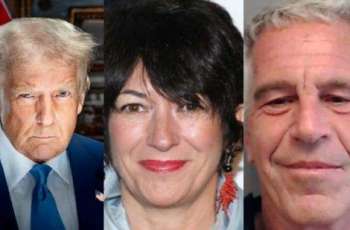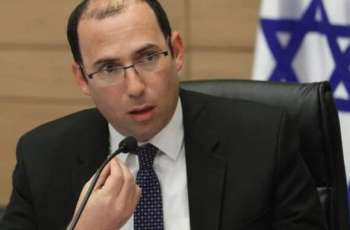Latest reports say Hezbollah possesses the world’s largest non-state yet trained militia, with thousands of fighters
BEIRUT: (UrduPoint/Pakistan Point News-Sept 30th, 2024) Hezbollah is a Lebanese resistance organization that operates as both a powerful militia and a political party, with representation in the Lebanese Parliament.
Lebanon experienced a civil war from 1975 to 1990, during which Hezbollah was founded and quickly became the most powerful organization in the country.
In 1982, Israel invaded Lebanon and occupied several areas in southern Lebanon. In response, Hezbollah initiated resistance against Israeli occupation and gradually pushed Israel out of Lebanese territory.
Hezbollah’s entry into parliamentary politics
Hezbollah was officially established in 1985, and after the end of the Lebanese civil war in 1992, when elections were held, Hezbollah entered parliamentary politics. In that election, Hezbollah won 8 out of the 128 seats in the Lebanese Parliament.
Since the 1990s, Hezbollah has consistently participated in the electoral process, and in the current Lebanese assembly, Hezbollah and its allies hold 62 seats.
Hezbollah-Israel war of 2006
In 2006, Hezbollah launched an attack inside Israeli territory, killing three Israeli soldiers and kidnapping two others. In response, Israel attacked Lebanon. This war lasted 34 days, resulting in the deaths of 1,200 Lebanese civilians and over 4,000 injuries, while 158 Israeli soldiers and civilians were also killed.
How powerful is Hezbollah?
According to independent security agencies, Hezbollah possesses the world’s largest non-state yet trained militia, with thousands of fighters.
The BBC reported that Hezbollah claims to have 100,000 fighters, but other sources suggest the number ranges between 20,000 and 50,000 fighters.
According to the Center for Strategic and International Studies (CSIS), Hezbollah has between 120,000 to 200,000 rockets and missiles, including anti-aircraft and anti-ship missiles.
Hezbollah’s welfare organizations
In addition to being an armed group and a political party, Hezbollah has established a comprehensive network of welfare programs, including schools, hospitals, and religious and cultural centers, employing thousands of people.
Gaza war and Hezbollah-Israel confrontation
During the Gaza war that began last October, following continuous Israeli attacks on Gaza, Hezbollah launched attacks on northern Israel in support of the Palestinians in Gaza, firing rockets. In retaliation, Israel bombed areas near the Lebanese border, displacing thousands of people in both countries.
From the start of the Gaza war last year until August this year, the conflict between Hezbollah and Israel was somewhat limited. However, after the killing of senior Hezbollah commander Fuad Shukr in an Israeli attack in August, the conflict escalated, with increased attacks from both sides.
At the beginning of September, Israel declared that it would ensure the return of its citizens to the northern regions and halt Hezbollah’s attacks. In response, Israel has launched continuous bombing campaigns on various Lebanese cities in recent days, while Hezbollah has retaliated by firing rockets and missiles.
Over the past two weeks, Israeli attacks have resulted in the deaths of Hezbollah’s Secretary-General Hassan Nasrallah and several senior commanders.
According to the Lebanese Ministry of Health, more than 1,000 Lebanese have been killed, and over 6,000 have been injured in Israeli attacks in recent days.




